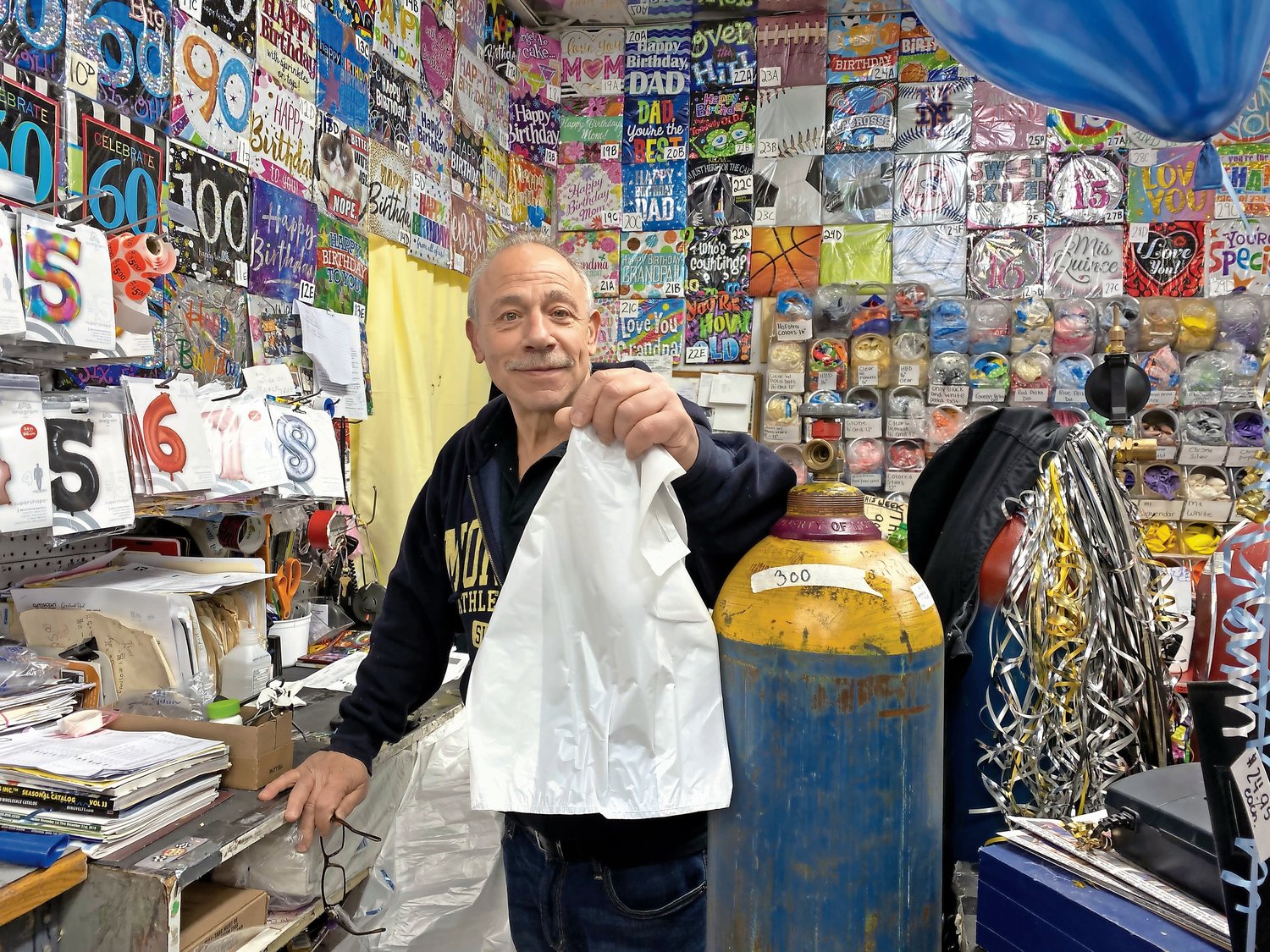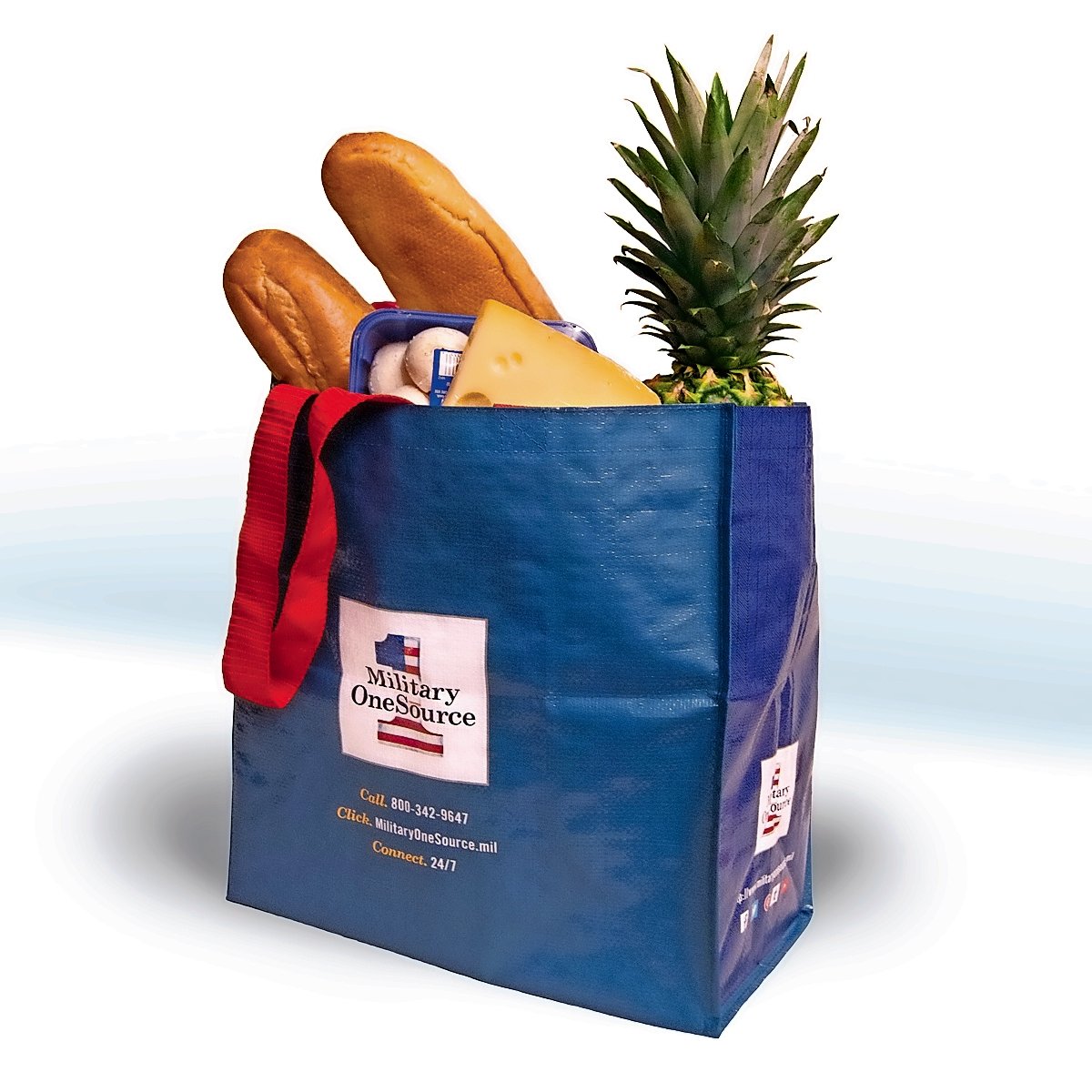Franklin Square, Elmont business owners unclear on new plastic bag law
A number of retailers in Franklin Square and Elmont are struggling to figure out how to meet the requirements of a new plastic-bag ban that will take effect statewide on March 1.
The Plastic Bag Waste Reduction Act was signed into law by Gov. Andrew Cuomo last April to help protect the environment. State officials estimate that New Yorkers use 23 billion plastic bags annually, and nationwide studies show that about 50 percent of single-use plastic bags end up as litter.
“You see plastic bags hanging in trees, blowing down the streets, in landfills and in our waterways, and there is no doubt they are doing tremendous damage,” Cuomo said at the bill signing. “Twelve million barrels of oil are used to make the plastic bags we use every year, and by 2050 there will be more plastic by weight in our oceans than fish. We need to stop using plastic bags, and today we’re putting an end to this blight on our environment.”
The law encourages customers to bring their own reusable bags by prohibiting businesses from distributing single-use plastic bags, unless they are used to carry food items, bulk items like fruits and vegetables, newspapers, prescription drugs, garments or trash.
State Sen. Todd Kaminsky, a Democrat from Long Beach who helped draft the legislation, said that residents would get used to the change as time goes on, as they have in his hometown. Long Beach imposed a bag fee in 2017, and now, Kaminsky said, “People find it more preferable” because “they like that they’re not contributing to a crisis.”
“One day,” he added, “people are going to look back on this and wonder how we did anything else.”
The state law also includes a provision allowing cities and counties to adopt a minimum 5-cent fee for paper bags, but Nassau County opted out of the requirement. As a result, retailers must decide whether they will charge 5 cents for paper bags and declare the extra money as income.
Business owners could face a $250 fine for violating the law and a $500 fine for doing so again.
But business owners in the community said the state did not do enough to publicize the law. John Randazzo, owner of Sandy’s Party Supply and Balloon Brothers Co. in Franklin Square, said he spoke with five people about the new law, but no one seemed to know what it entailed. The same thing happened last year, he said, when county officials banned single-use polystyrene foam containers. Randazzo said he had to get rid of $1,000 worth of plastic foam products to prepare for implementation of the law — which took effect on Jan. 1, 2019 — but he is still unclear about its details.
“This is a confusing world we live in today,” he said. “When you come to New York, you should get a handbook of how to live your life.”
Randazzo has now purchased paper bags for the store, but said they are on back order across the state. The bags, however, are not much better for the environment, Randazzo said he believed, because trees must be cut down to manufacture them.
A 2011 study by the Northern Ireland Assembly concluded that it takes four times as much energy to make a paper bag. The process includes heating wood chips under high pressure at a high temperature in a chemical solution, which contributes to both air and water pollution.
Additionally, the study states, paper bags generate 70 percent more air and 50 times more water pollution than plastic bags.
Paper bags also cost four to five times more than their plastic counterparts, according to Elmont Chamber of Commerce President Paul Sapienza. He said he typically pays 1 to 2 cents per plastic bag at his store, Sapienza Bakery, but would have to pay 5 to 8 cents per paper bag.
When he first opened the store on Hempstead Turnpike in the 1970s, however, he said, people did not use plastic bags “and we managed.” Employees at the bakery, he explained, could just tie two or three boxes together to make it easier for customers to carry their pastries home.
But to make up for the price increase in bags for those who need them, Sapienza said, he will probably raise the price on all of his products rather than charge the customers for each bag they need. “We don’t want to nickel- and-dime people,” he said, adding that not having to pay a fee for each bag would make for a better shopping experience.
Bobby Falkowski, the manager of K&W Liquors Inc. in Franklin Square, meanwhile, suggested that he might try a new tactic — creating a deal in which customers who buy six bottles get a free reusable bag. It would help save the store money in the long term, he said, as he would have to buy fewer paper bags.
“Even losing 5 cents is significant,” Sapienza said, referring to the increase in expenses for businesses, because “retail is suffering from a thousand little cuts. We have to stay in business.”









